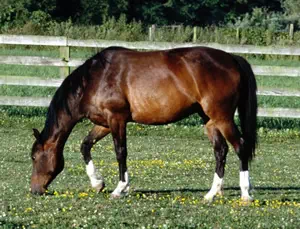|
 GEORGIA GEORGIA
Carcass Disposal State Regulations
General
Depending on circumstances, large animal carcass disposal may be regulated by a state's solid waste, medical waste, agriculture, or emergency management regulations. If your state does not provide specific guidance or regulations relating to large animal carcass disposal, check with your local health department, or city/county laws and ordinances.
In addition, during emergency situations and disasters (e.g., blizzards, floods, hurricanes, mass die-offs, etc.), consult with your local emergency officials, your state emergency planning agency, or the state veterinarian, to determine approved methods of carcass disposal.
Applicable Agencies and Regulations for Georgia
Georgia Department of Agriculture Animal Industry Division
Address: 19 Martin Luther King, Jr. Dr., S.W., Atlanta, GA 30334
Contact Information: http://team.georgia.gov/portal/site/AGR/menuitem.2f54fa407984c51e93f35eead03036a0/
?vgnextoid=0bfc733860a06210VgnVCM100000bf01020aRCRD
Rules and Regulations: Rules of Georgia Department of Agricultrue Animal Industry Division Chapter 40-13-5: Dead Animal Disposal. Certificates of Compliance may be issued. Methods which may be used for the disposal of dead animals are burning to ash, incineration, burial, rendering, or any method using appropriate disposal technology which has been approved by the Commissioner, provided disposal of dead animals is carried out within 24 hours after death or discovery of the dead animal. Disposal options addressed:
- Rendering: Must be delivered to the rendering facility within 24 hours of death unless refrigerated or frozen.
- Landfilling: At Georgia Department of Natural Resources and Environmental Protection approved sites.
- Burial: More than 100 horizontal feet away from existing or proposed wells and water supply, 15 horizontal feet away from the edge af any embankment and 100 horizontal feet away from the high water levels of any body of water. At least 3 feet, but no more than 8 below ground level. Pits must be approved by GDA.
- Burning: Must comply with federal, state and local requirements.
- Composting: Composters and their use must be consistent with the USDA NRCS technical guidance standards. Temperatures must be monitored using a compost thermometer at least every other day, with daily checks being preferred. Composters must reach a temperature between 130 and 160 degrees F in order to properly decompose carcasses and neutralize pathogens.
- Other Methods: Other methods must be approved by the State Veterinarian on a case by case basis. Also see: Management of Animal Mortality in Georgia, January 2005 from University of Georgia at: http://www.agrosecurity.uga.edu/annexes/Annex06_Mortality.pdf.
Georgia General Assembly
Address: Suite 201 Paul D. Coverdell Legislative Office Building, 18 Capitol Square, Atlanta, GA 30334
Rules and Regulations: O.C.G.A. Title 4 - Animals, Chapter 5 - Disposal of Diseased, Disabled, or Dead Animals. Defines dead animals and describes what can and cannot be done for disposal. Methods which can be used for disposal of dead animals are burning, incineration, burial, rendering, or any method using appropriate disposal technology which has been approved by the Commissioner of Agriculture. Disposal of dead animals by any of the approved methods must be completed within 24 hours after death or discovery.
More Information
Mortality Management Options for Georgia Poultry Growers Publication B1244 (Georgia College of Agricultural and Environmental Sciences (Cooperative Extension Service, 2004). Describes mortality management options for poultry. An additional guide titled "Poultry Mortality Disposal Methods Following Catastrophic Loss" is available at http://www.caes.uga.edu/applications/publications/files/pdf/B%201342_1.PDF.
Poultry Mortality Composting Management Guide Publication B1266 (Georgia College of Agricultural and Environmental Sciences (Cooperative Extension Service, 2004).. Describes managing poultry mortalities through composting. An additional guide titled "Composting Mass Poultry Mortalities" is available at: http://www.caes.uga.edu/applications/publications/files/pdf/B%201282_3.PDF.
The Cornell Waste Management Institute (CWMI) maintains a database of carcass disposal state regulations promulgated by state environmental, agricultural and other agencies. There may be additional information on this site, not found on VetCA, that can be helpful to veterinarians, ranchers and farmers. Click here to access the CWMI information for Georgia.

Choose another state
|

